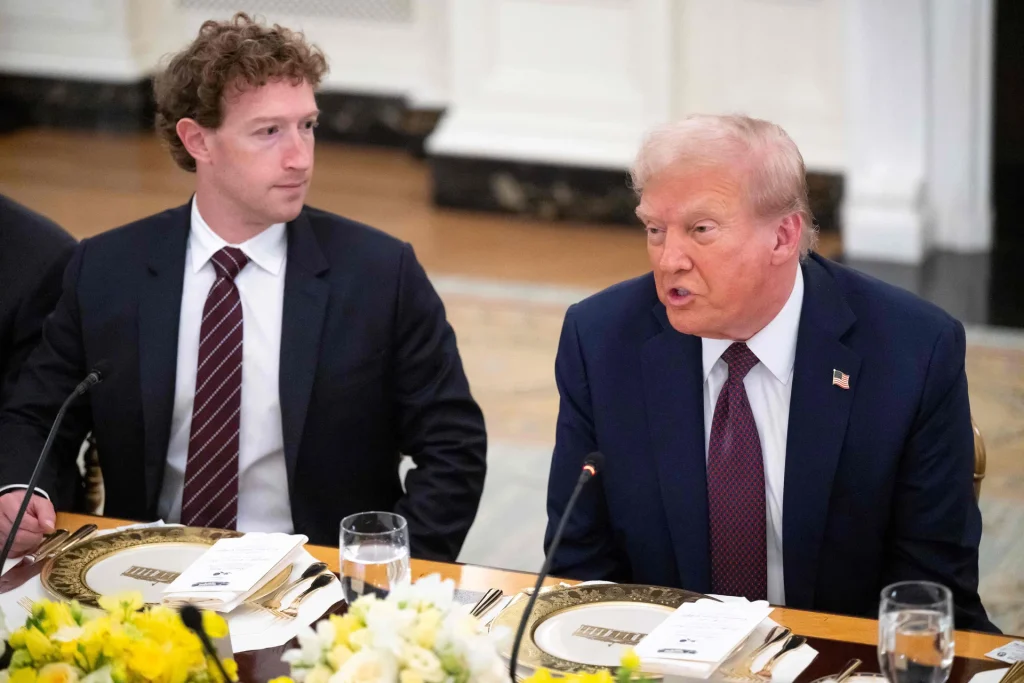A COUPLE of weeks ago, a story emerged in Washington that was likely to make any chief executive officer shudder: According to Axios, the White House has created a secret “loyalty rating” chart ranking 553 companies and business groups on whether they display “low”, “moderate” or “strong” support for the policies enshrined in Donald Trump’s “big, beautiful” Budget Bill.
Initially, Trump’s team did not comment on the story, although the White House has since confirmed that the scorecard – on which groups such as Delta, DoorDash and Uber are reportedly rated highly – does exist.
But what is perhaps most notable in all this is the lack of any visible business reaction. After all, using “loyalty rankings” as a basis for policy dealings is certainly not an American norm; on the contrary, it seems to underscore that the administration has scant respect for the concept of a universal rule of law.
That should worry any business. So should the uncertainty about Trump’s tariff policies, deportations and regulatory upheaval. But few executives have criticised the president in public so far, even as constitutional lawyers howl. And when I recently participated in different private roundtables with executives and investors, there was little private criticism either. Fealty and silence is the new norm.
Why? If I were to put America’s C-suite on the metaphorical couch right now, I would point to at least five factors.
The first – and most obvious – is fear and greed: CEOs are terrified of incurring Trump’s wrath if they oppose him, and most seem convinced they can arbitrage his policies to their own advantage, due to deregulation and/or their links with the White House. This is why “loyalty lists” matter.
BT in your inbox

Start and end each day with the latest news stories and analyses delivered straight to your inbox.
A second factor is partisan politics. According to Gallup, just 1 per cent of Democrats approve of Trump’s job performance, while 93 per cent of Republicans do – equalling the biggest split since this survey started in 1979. Since business leaders skew Republican and tend to dislike progressive politicians, such as Alexandria Ocasio-Cortez, this split matters.
In addition, there are three other more subtle, and less noticed, factors at work, too. One is that it seems that Trump’s “shocking” policies are starting to lose their ability to shock the C-suite quite as much as before.
Blame this, if you like, on the fact that we are now in Trump’s second term, and on a widespread embrace of the “Taco” (Trump always chickens out) thesis – that the US president always chickens out of his wildest threats.
Moreover, business leaders have faced a series of once-unimaginable shocks in recent years, including the global financial crisis, the Covid-19 pandemic and Russia’s full-scale invasion of Ukraine. So CEO cognitive resilience has grown – and perhaps complacency has, too.
A fourth factor is “animal spirits”, to cite John Maynard Keynes. Economists have always assumed that if businesses expressed public optimism, investors would feel the same. This still holds true: the fact American companies are currently beating earnings forecasts has helped to propel stocks to record highs.
However, the causality is now also working in reverse: It is hard for any corporate leader to express alarm about the outlook, or criticism of Trump, when markets seem so giddily exuberant. A form of crowd psychology is at work that few CEOs dare defy.
Last but not least, there is the issue of artificial intelligence (AI). A host of executives and investors seem to love Trump’s policies on AI, most notably because he is deregulating it under the mantra of boosting growth – an idea that appeals to American executives increasingly scornful of what they see as Europe’s low-growth, regulation-heavy model.
However, there is another implication of the AI boom: it is enabling CEOs to talk to their investors about business uncertainty without ever needing to mention Trump’s name at all.
More bluntly, AI is the ultimate distraction device for the C-suite, since it is now absorbing so much executive headspace and public airtime that there is less space to think about other issues, such as the uglier side of Trump’s policies. It gobbles up bandwidth, literally and metaphorically.
Now, I daresay there will be readers who might disagree with this five-part explanation. Some business leaders genuinely love Trump’s policies, and think they will unleash long-term growth.
But if you think this five-part frame is even halfway accurate, then the key thing to ponder is whether anything might cause the psychology to change. If markets tumble, AI becomes less distracting or tariffs crush earnings, could there be a backlash? Or if Europe recovers, might that take the shine off Trump?
Right now, we do not know. But what is clear is that it is a fool’s errand to think American CEOs will spark an anti-Trump rebellion anytime soon. That White House loyalty list has already done its job. FINANCIAL TIMES


